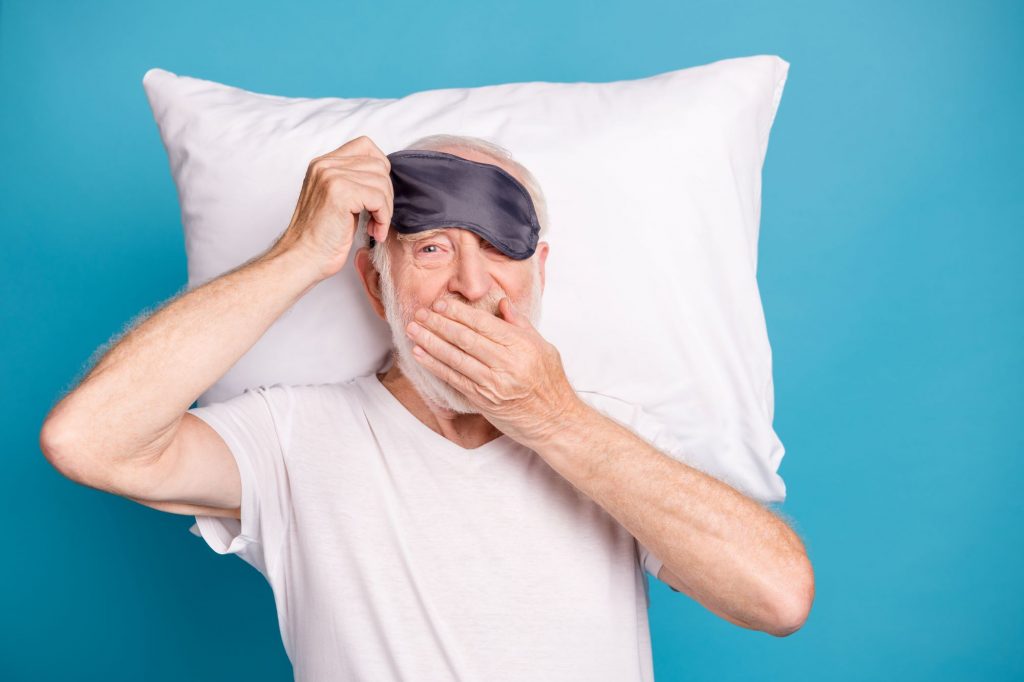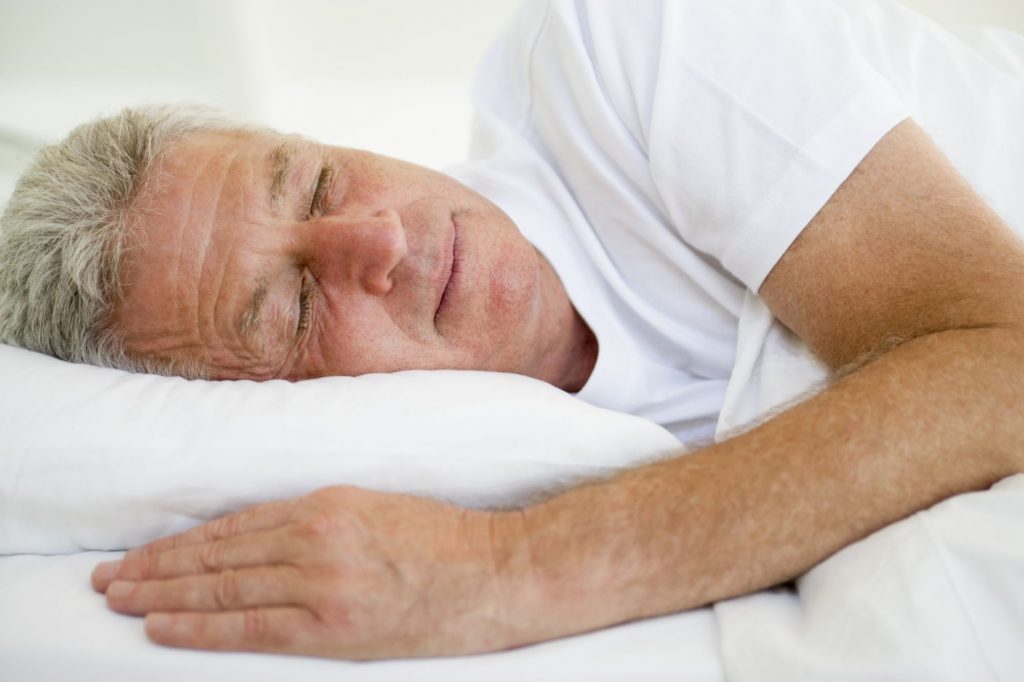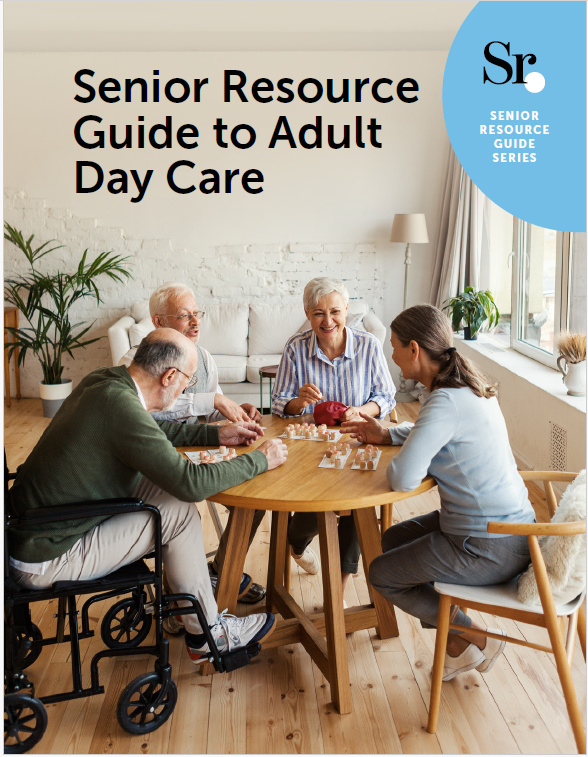5 Secret Benefits of a Good Night’s Sleep for Seniors (Plus 5 Ways to Fall Asleep Faster!)

Sleep is a complex process that requires several parts of the brain to work together. Typically, as you progress through a night of sleep, your body goes through a series of cycles that encompass different stages of sleep. It starts with waking up, then transitioning into light sleep, followed by deep sleep and REM sleep. This cycle repeats throughout the night. Interestingly, the earlier cycles tend to have more deep sleep, which is the restorative phase of sleep where your body repairs and rejuvenates. As the night progresses, the proportion of REM sleep increases, which is when vivid dreaming occurs. By the final cycle, it’s possible for your body even to skip deep sleep altogether, focusing more on REM sleep. It’s incredible how our sleep patterns change and adapt as the night goes on!
Sleep Stage 1
Stage 1, non-rapid eye movement (or, NREM) sleep is the lightest stage of sleep that occurs right after you fall asleep. It usually lasts for a few minutes, and during this stage, your body and brain activities start to slow down. Your muscles begin to relax, and there may be brief periods of movement. It’s easy to wake up during stage 1 sleep as your eyes are closed but not fully relaxed. Your heart rate slows down, and your body temperature decreases.
Sleep Stage 2
During stage 2 of NREM sleep, your body starts to wind down even more. Your heartbeat, breathing, muscle activity, and eye movements all slow down. Your body temperature also drops during this stage. Did you know that you spend about half of your night in stage 2 sleep?
Sleep Stage 3
During stage 3 sleep, it becomes more difficult to wake up. This is because your muscle tone, pulse, and breathing rate decrease even further as your body relaxes deeply. It’s fascinating to note that during this stage, brain activity exhibits a distinct pattern of delta waves. These slow and rhythmic waves characterize the deep sleep state, contributing to its restorative nature.
Sleep Stage 4
During REM sleep, which is the fourth stage of sleep, your brain is highly active with mental activities. Interestingly, while your brain is engaged, your voluntary muscles become temporarily paralyzed, which prevents you from physically acting out your dreams. Remarkably, our bodies have this built-in mechanism to ensure safety and prevent any potential harm during this dream-filled state. Additionally, REM sleep plays a super important role in memory consolidation, as your brain uses this time to solidify and store information, making it an essential stage for learning and retaining new knowledge.
How Much Sleep Do Seniors Need?

According to the National Institute on Aging, it’s important for older adults to prioritize getting 7-9 hours of sleep per night, just like younger adults. However, seniors often face challenges in achieving sufficient sleep due to the biological changes their bodies go through. Despite these challenges, it remains important to recognize the significance of a good night’s sleep and make it a priority. Taking steps to establish healthy sleep habits can greatly contribute to your overall well-being.
Benefits of Sleep for Seniors

Sleep provides our bodies with the opportunity to rest and replenish energy. Without it, you could experience various problems like depression, irritability, memory issues, difficulty concentrating, an increased risk of accidents, and a general decrease in the quality of everyday life. Here are 5 health benefits of getting a good night’s sleep!
1. Enhanced Cognitive Function
Getting a good night’s rest is essential for maintaining a healthy brain and a sharp memory. It’s widely recognized that when we don’t get enough sleep, it negatively affects our attention span and short-term memory. Not only that, but it also weakens our decision-making ability and impairs long-term memory. What’s even more concerning is that prolonged sleep deprivation can contribute to cognitive decline and memory loss, and can even increase the risk of developing dementia.
2. Maintaining a Healthy Weight
Did you know getting a good night’s sleep actually supports your metabolism? One way it does this is by regulating the hormone ghrelin (AKA, “the hunger hormone”), which controls your appetite. When you’re sleep deprived, your metabolism slows down, which can lead to weight gain.
3. Reducing Fall Risk
Reducing the likelihood of falls is something we’re always talking about when it comes to older adults, as aging can bring about balance, flexibility, and mobility issues that increase the risk of accidents and injuries. If you’re getting enough sleep, you’ll have more energy during the day. This increased energy enables you to move around your home with greater ease and might help reduce feelings of weakness and tiredness. Consequently, the risk of slipping or falling decreases!
4. Boost Your Immune System
Sleep deprivation has been found to have a detrimental effect on the immune system. When you don’t get enough sleep, your body’s natural defense mechanisms are weakened, making you more susceptible to illnesses and infections. Getting enough sleep gives your immune system a boost, making it stronger and more effective in fighting off diseases and conditions caused by viral infections, fungus, and bacteria.
5. Preserve Your Mental Well-Being
The connection between sleep and mental health is undeniable. They have a profound impact on each other in various ways. When you don’t get enough sleep, it can significantly impact your mental well-being, leading to issues such as depression and anxiety. On the flip side, mental health conditions can disrupt your sleep patterns and reduce the quality of your sleep. That’s why prioritizing a good night’s sleep is so important for maintaining optimal mental well-being. It plays a really important role in promoting mental health and overall emotional balance.
Tips for a Better Night’s Sleep

If you’ve gotten this far and you’re thinking to yourself – I want to sleep, but I just have trouble catching those zzz’s! Here are a few ideas to help you rest:
- Encourage better sleep at night by naturally boosting melatonin levels. You can do this by avoiding artificial lights at night, as they can suppress the body’s production of melatonin.
- Avoid afternoon naps, as they can interfere with nighttime sleep. Also, refrain from drinking alcohol close to bedtime.
- Create a sleep-friendly environment by using earplugs, a sleep mask, and extra blankets. It can also be helpful to lower the thermostat to a cooler temperature.
- Develop consistent sleep routines to signal to your body that it’s time to sleep.
- Practice good sleep hygiene by going to bed and waking up at the same time each day, including weekends. Ensure that your bedroom is quiet and comfortable.
Remember: It’s always a good idea to consult with a healthcare professional for personalized advice.
Popular Articles About Health & Wellness
Originally published January 22, 2024








